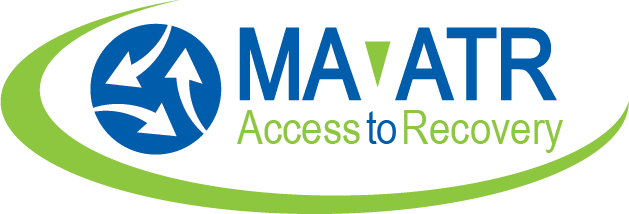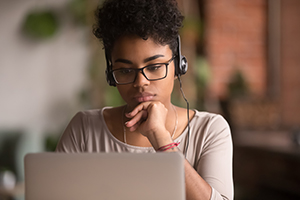Massachusetts Access to Recovery (ATR)
AHP manages the Access to Recovery Program (ATR) for the Bureau of Substance Addiction Services (BSAS), which offers recovery support services to people in early recovery from substance use disorder. It is ATR’s top priority to keep participants and staff safe and healthy during the COVID-19 pandemic. Until Spring 2020, all ATR services, programs, classes, and trainings took place in person. When COVID-19 hit, ATR pivoted all service provision and job training programs to an online, virtual environment. Because most ATR participants did not have access to modern technology, ATR purchased the technology for participants so they could enroll in the online job-training programs. More than 100 Chromebooks, earphones, and Wi-Fi hotspots have been purchased and delivered to participants enrolled in the various job training programs, including job readiness and occupational training programs.
This technology was necessary because the Career Building Initiative (ATR’s job training program), quickly redesigned curricula for an online delivery format. ATR is now offering education and career readiness programs for active ATR participants in a variety of ways. For example, our partners now deliver training programs in person, online, or through a hybrid learning model that blends components from both face-to-face interaction and online programming. Several programs have reopened using this new format, including all four of the MassHire Career Centers (which implement ATR’s 3-week job readiness program), YMCA Training, Inc., Community Work Services, Bristol Community College, Holyoke Community College, New England Culinary Arts Training (NECAT), the American Academy of Personal Training, Project Place, truck driving programs, and others.
Because group shopping trips are no longer possible, ATR shoppers (working from their homes) go online to pay monthly bills (gas, electric, insurance, internet, etc.) or purchase critical essential items for participants.
In addition, the Sober Home Pilot Project is now enrolling new referrals by telephone so they can take advantage of rental assistance for their stays in Sober Homes throughout Massachusetts. Find out more here.
AHP manages the Access to Recovery Program (ATR) for the Bureau of Substance Addiction Services (BSAS), which offers recovery support services to people in early recovery from substance use disorder. It is ATR’s top priority to keep participants and staff safe and healthy during the COVID-19 pandemic. Until Spring 2020, all ATR services, programs, classes, and trainings took place in person. When COVID-19 hit, ATR pivoted all service provision and job training programs to an online, virtual environment. Because most ATR participants did not have access to modern technology, ATR purchased the technology for participants so they could enroll in the online job-training programs. More than 100 Chromebooks, earphones, and Wi-Fi hotspots have been purchased and delivered to participants enrolled in the various job training programs, including job readiness and occupational training programs.
This technology was necessary because the Career Building Initiative (ATR’s job training program), quickly redesigned curricula for an online delivery format. ATR is now offering education and career readiness programs for active ATR participants in a variety of ways. For example, our partners now deliver training programs in person, online, or through a hybrid learning model that blends components from both face-to-face interaction and online programming. Several programs have reopened using this new format, including all four of the MassHire Career Centers (which implement ATR’s 3-week job readiness program), YMCA Training, Inc., Community Work Services, Bristol Community College, Holyoke Community College, New England Culinary Arts Training (NECAT), the American Academy of Personal Training, Project Place, truck driving programs, and others.
Because group shopping trips are no longer possible, ATR shoppers (working from their homes) go online to pay monthly bills (gas, electric, insurance, internet, etc.) or purchase critical essential items for participants.
In addition, the Sober Home Pilot Project is now enrolling new referrals by telephone so they can take advantage of rental assistance for their stays in Sober Homes throughout Massachusetts. Find out more here.

